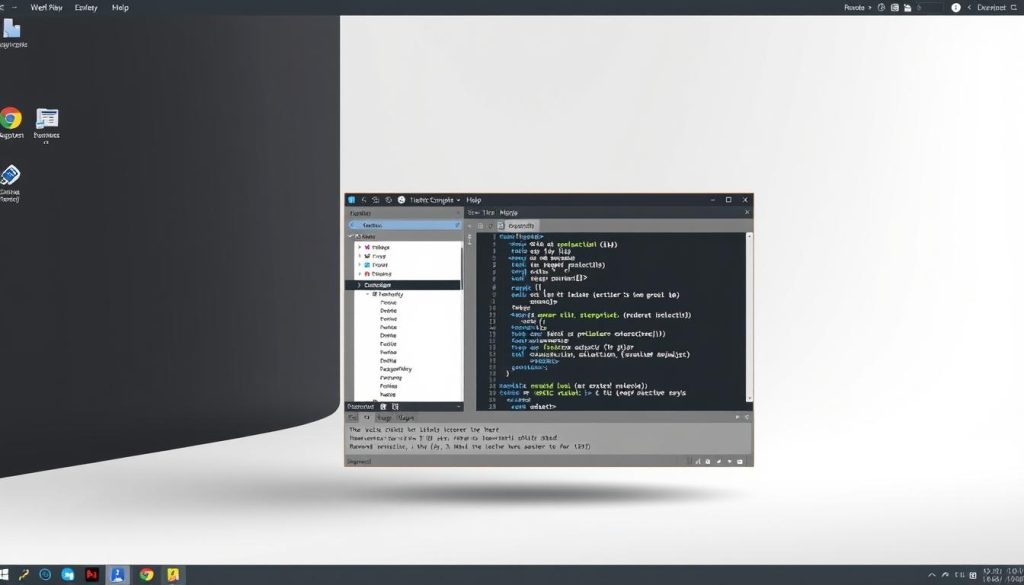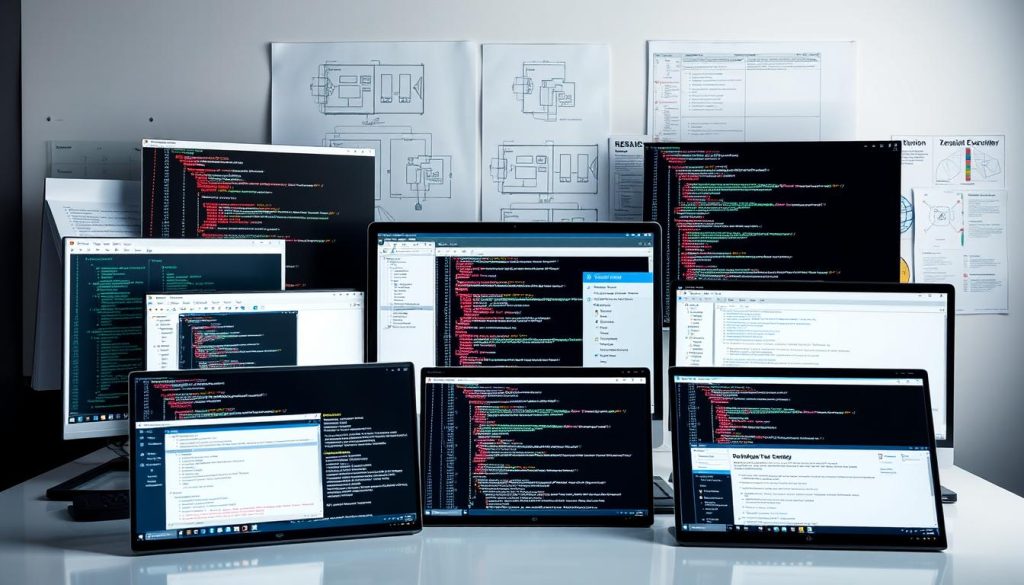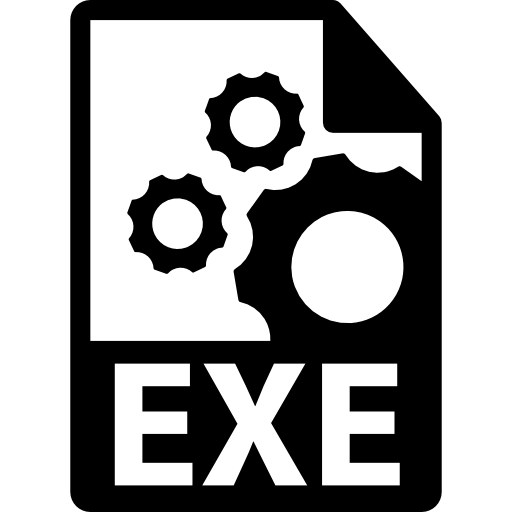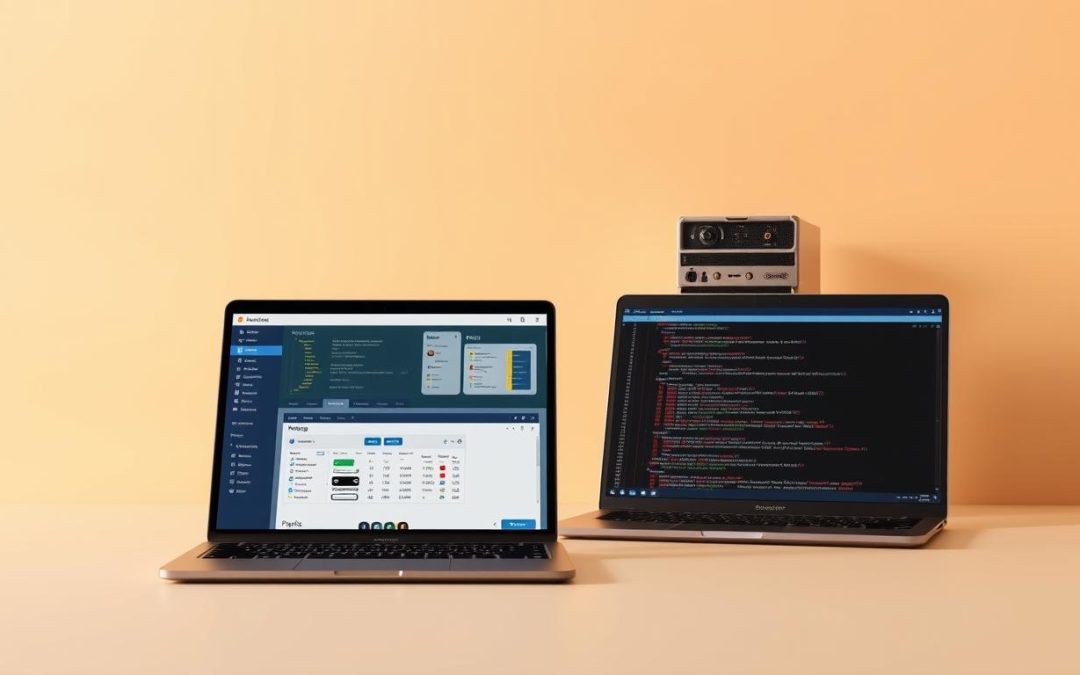In today’s fast-paced world of software and cybersecurity, exe decompiler online tools are key. They help experts analyze executable files without the original code. These tools let developers, security researchers, and IT pros explore binary apps deeply. They find out how software works and where it might be weak.
An online decompiler makes complex files easier to read. It gives a clear look at software’s structure and possible security threats. As tech grows, these tools are more important for understanding, fixing, and protecting digital systems.
Nowadays, exe decompiler online tools have advanced features. They help experts in many areas, like fighting malware and making software run better. These tools are vital in many technical fields.
Key Takeaways
- Online decompilers transform binary executable files into readable code
- Critical for software security and reverse engineering processes
- Essential tools for developers and cybersecurity professionals
- Provide deep insights into software functionality
- Support advanced code analysis techniques
Understanding EXE Decompilers and Their Importance
Reverse engineering tools are key in software development and cybersecurity. They help developers and security experts understand complex software. This is vital for spotting code behavior and vulnerabilities.
Decompilers turn machine code back into programming languages. This lets developers deeply analyze software parts. These tools connect compiled files to their original source code.
Basic Principles of Binary Decompilation
Binary decompilation involves several key steps:
- Extracting machine instructions from executable files
- Reconstructing higher-level programming logic
- Generating human-readable code representations
- Maintaining original algorithmic structures
Why Developers Need Decompilers
Developers use reverse engineering tools for many reasons:
- Troubleshooting complex software issues
- Improving software performance
- Understanding third-party code
- Keeping legacy systems running
Security Implications of Decompilation
Executable file analysis offers key security insights by enabling:
| Security Aspect | Benefit |
|---|---|
| Vulnerability Detection | Spotting potential security weaknesses |
| Malware Research | Studying threat mechanisms |
| Code Integrity Verification | Checking software reliability |
Professional security researchers use decompilers to grasp complex software. They protect digital worlds from cyber threats.
Best Free EXE Decompiler Online Platforms

Developers and security experts have many free online exe decompiler tools. These tools let you analyze code easily without installing software.
Top online decompiler sites offer great features for reverse engineering. You can quickly check binary files, get source code, and see program structures. All this is done through simple web interfaces.
- Minimal setup requirements
- Cross-platform compatibility
- Instant code insights
- No download necessary
When comparing online decompilers, each has its own strengths. Security experts, software developers, and tech pros use these tools for detailed binary analysis.
| Platform | Key Features | File Size Limit |
|---|---|---|
| Retrace | Advanced code mapping | 10 MB |
| BinText | String extraction | 5 MB |
| Snowman | Multiple language support | 15 MB |
Choosing the best online decompiler depends on your project needs. Performance, user interface, and supported file formats are key when picking a tool for executable file analysis.
Key Features to Look for in Online Decompilers
Choosing the right online decompiler is crucial. Developers and security experts need tools that can deeply analyze code. They should offer detailed code disassembly and static analysis.
When looking at online decompilers, it’s important to know what they do best. The top tools do more than just pull out code. They provide advanced features.
Advanced Code Analysis Capabilities
Good code disassembly tools have several key features. They should:
- Generate detailed pseudocode
- Identify function calls clearly
- Map code structures well
- Finding vulnerabilities is a must
Intuitive User Interface Design
A user-friendly interface makes a big difference. Look for platforms with:
- A clean, easy-to-use design
- Drag-and-drop features
- Interactive code views
- Updates in real-time
Comprehensive File Format Support
Top online decompilers handle more than just EXE files. They support various executable formats, such as:
- Windows PE files
- Dynamic Link Libraries (DLLs)
- COM objects
- System drivers
Experts need tools that offer deep static code analysis. This makes reverse engineering easier.
Security Considerations When Using Online Decompilers

Online decompilers are great for analyzing executable files. But, they also bring big security risks. When you upload files, you risk losing your intellectual property and system safety.
Here are some important security points to think about:
- Keep your source code safe from people who shouldn’t see it
- Make sure the online decompilation sites you use are trustworthy
- Use secure ways to send files
- Put files in sandboxed areas to keep them safe
When doing malware analysis with online decompilers, be extra careful. Here’s what researchers should do:
- Choose well-known sites with strong security
- Keep analysis areas separate from your main network
- Have strict rules for checking files
- Remove files right after you’re done analyzing them
Always treat every executable file as if it could be harmful during analysis. It’s key to pick trusted sites with good encryption and privacy rules to keep your info safe.
Choosing the right platform is very important because of the risk of losing your code or running into bad files.
Important steps include checking the site’s privacy policy, knowing how they keep data, and making sure files are well-protected during decompilation.
Popular Online Tools for Executable File Analysis
Looking into online exe decompiler tools shows a wide range of options. These tools help developers and security experts understand executable files. The market for digital forensics and reverse engineering has many ways to break down software binaries.

Today’s developers need flexible Windows PE decompiler tools. These tools must quickly analyze complex executable files. The market offers several types of analysis tools:
- Browser-based lightweight solutions
- Robust cloud-based platforms
- Advanced hybrid decompilation systems
Browser-Based Solutions
Browser-based exe decompiler online tools are easy to use. They don’t need complex software installations. This makes them perfect for quick code analysis and initial investigations.
Cloud-Based Platforms
Cloud-based Windows PE decompiler services handle big executable files well. They use powerful computing to quickly and accurately analyze complex binary structures.
Hybrid Solutions
Hybrid decompilation tools are the most advanced. They mix browser ease with cloud power. These tools offer detailed analysis features, combining desktop and web methods.
The right exe decompiler online tool can make complex binary analysis easy and efficient.
Advanced Techniques in Static Code Analysis

Static code analysis is key for developers wanting to understand software deeply. It uses tools to look at code without running it. This shows complex patterns and security risks.
Advanced static code analysis goes deeper than just looking at the surface. It uses complex methods to find hidden code issues:
- Control flow analysis for tracking program execution paths
- Data flow examination to understand variable interactions
- Symbolic execution for comprehensive code behavior prediction
Developers use these methods to:
- Find security risks
- Boost performance
- Get a clear view of code structures
- Spot runtime errors
Advanced tools help understand code better by breaking down files into parts we can read. These methods give developers a deep look into software. They help make better code choices.
Static code analysis turns complex code into clear insights. It connects machine code to what humans can understand.
But, static analysis has its limits. For detailed security checks, it’s often needed with dynamic analysis. This gives a full picture of software.
Comparing Desktop vs Online Decompiler Solutions
Developers and software analysts have to make a big choice. They must decide between using desktop or online decompiler solutions. The world of analyzing executable files has changed a lot. Now, there are many ways to look at code through online and exe decompiler platforms.

The digital world has changed how we look at code. Before, desktop decompilers were the top choice. But now, online solutions are becoming more popular because of their benefits.
Performance Differences
How well a decompiler works is very important. Desktop decompilers usually do better with:
- Faster processing for big files
- Using more of your computer’s power
- Dealing with complex code better
Online decompilers, on the other hand, offer:
- Quick access without needing to install anything
- Using the cloud for faster processing
- Working together in real time
Accessibility Features
Online decompiler platforms are great for working from anywhere. You can analyze files from any device with internet. This means you don’t have to worry about software not working on your computer.
Cost Considerations
People who are careful with their budget like online exe decompiler options. These platforms often have:
- Free versions to try
- Subscription plans that grow with you
- Pricing based on how much you use it
Choosing between desktop and online decompilers depends on what you need for your project. It also depends on your security concerns and how much computer power you have.
Malware Analysis Using Online Decompilers

Online decompilers are key in analyzing executable files and spotting malware. They help security experts study suspicious files safely. This way, they can find threats without risking their systems.
Effective use of online decompilers for malware analysis includes several steps:
- Isolated environment scanning
- Behavioral pattern identification
- Code structure examination
- Threat signature detection
Cybersecurity pros use online decompilers for static code analysis. These tools let them break down files and check their inner workings. This way, they can spot malicious code and find security holes.
The best online decompilers have many features for malware hunting:
- Automated threat detection algorithms
- Detailed code reconstruction
- Visualization of program flow
- Cross-referencing with known malware databases
Even with these tools, complex malware might need deeper offline analysis. Security teams must stay alert and use many methods to fully understand threats.
Professional Tools for Windows PE Decompilation
Enterprises need advanced Windows PE decompiler tools to get deep insights into executable files. Software development and cybersecurity teams use strong EXE unpacker solutions. They analyze complex binary structures and check for security vulnerabilities.

Modern decompilation platforms change how organizations do code analysis and reverse engineering. They offer powerful tools for this.
Enterprise-Grade Decompilation Solutions
Professional Windows PE decompiler tools have key features for big software analysis:
- Automated executable file unpacking
- Advanced malware detection mechanisms
- Comprehensive code reconstruction
- Seamless integration with security frameworks
Specialized Technological Features
Top EXE unpacker solutions stand out with unique tech features:
| Feature | Enterprise Value |
|---|---|
| Multi-language Support | Analyze executables across diverse programming environments |
| Obfuscation Detection | Identify potentially malicious code modifications |
| Cloud-Based Analysis | Scale decompilation processes without local infrastructure limitations |
| Real-Time Threat Monitoring | Continuous executable file security assessment |
Sophisticated decompilation tools are key for organizations wanting deep software insights and strong security.
Common Challenges in Online EXE Decompilation
Working with online exe decompiler tools can be tough for developers. They need special skills to break down executable files. Trying to reverse engineer software often leads to big problems.
The main issues with online decompilation are:
- Code obfuscation techniques that hide the program’s logic
- Advanced anti-decompilation tools
- Decompiled output that’s not complete or wrong
- Limitations of automated decompilation tools
Malware and commercial software use complex protection. These make code disassembly hard for experts.
“Decompilation is an art of understanding encrypted digital landscapes”
Experts use many decompiler tools and check results manually. They also use new exe decompiler online platforms. These platforms use machine learning and advanced algorithms.
Here are some ways to tackle decompilation challenges:
- Use different decompilation tools
- Do detailed manual code checks
- Keep up with new decompilation tech
- Know how to beat anti-reverse engineering tricks
Best Practices for Reverse Engineering
Using reverse engineering tools and analyzing executable files needs careful handling. It’s important to know the legal and ethical sides well. Professionals must understand the limits of these powerful tools.
Good reverse engineering is about being strategic and ethical. Developers and security experts must mix their curiosity with integrity.
Legal Considerations in Reverse Engineering
Understanding the legal side of reverse engineering is key. Here are some important points:
- Respect intellectual property rights
- Get the right permissions before you start
- Check the software’s licensing agreement
- Follow local and global copyright laws
Ethical Guidelines for Tool Usage
Ethical reverse engineering is about being open and respectful:
- Use these tools only for good reasons
- Keep a record of your methods
- Keep sensitive info safe
- Share vulnerabilities the right way
Using reverse engineering tools wisely means always learning and following the rules.
Portable Executable Format Understanding
The Portable Executable (PE) format is key for Windows executable files. A Windows PE decompiler gives developers and security experts deep insights into software. Knowing this format helps analyze executable files and their inner workings.
PE files have important parts that show their structure and how they work:
- DOS Header: Initial legacy compatibility layer
- PE Header: Contains core file metadata
- Section Headers: Define code and data segments
- Import/Export Tables: Map external library dependencies
Developers use a portable executable viewer to learn about an app’s architecture. These tools help in deep code analysis. They find security risks and understand how software works.
| PE Component | Primary Function | Analysis Importance |
|---|---|---|
| DOS Header | Legacy System Compatibility | Ensures backward compatibility |
| PE Header | File Metadata Storage | Provides essential file information |
| Section Headers | Memory Segment Definition | Maps executable memory layout |
A detailed Windows PE decompiler helps professionals with complex executable structures. It supports tasks from software development to cybersecurity research. By knowing PE format details, experts can do advanced binary analysis and boost system security.
Conclusion
Online exe decompiler platforms play a big role in today’s tech world. They help developers and security experts understand executable files. This lets them analyze code deeply and find vulnerabilities.
These tools have evolved a lot, showing great promise in solving software problems. Teams use them to get into old code, check for security issues, and find system weaknesses. They do this with great accuracy and speed.
The need for advanced exe decompiler online tools will keep growing. It’s important for users to use these tools responsibly. They should respect copyrights and follow ethical rules.
New research in decompilation is making tools better, safer, and more complete. It’s key for both professionals and hobbyists to keep up with these advancements. They help connect software analysis and cybersecurity in new ways.

